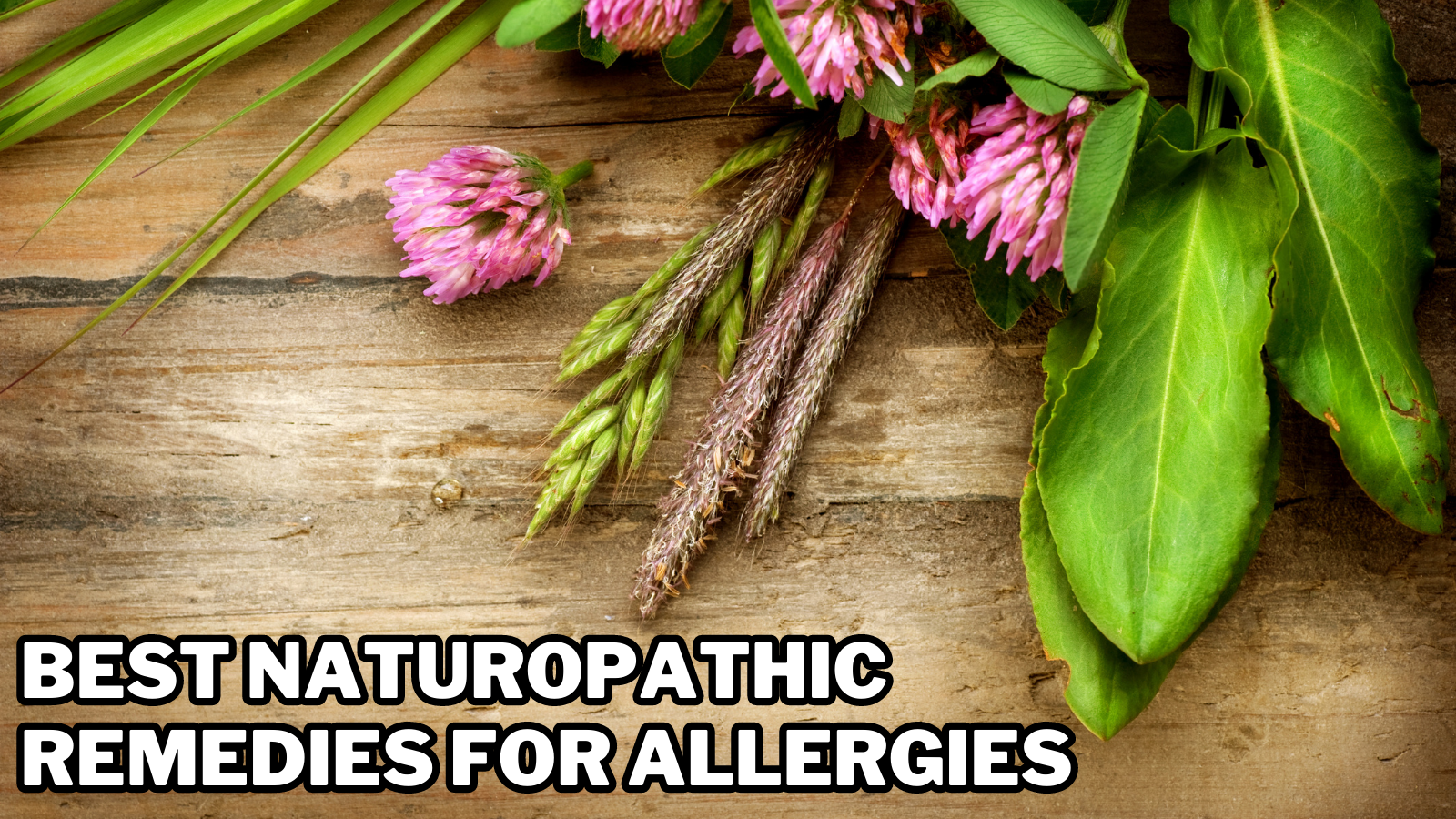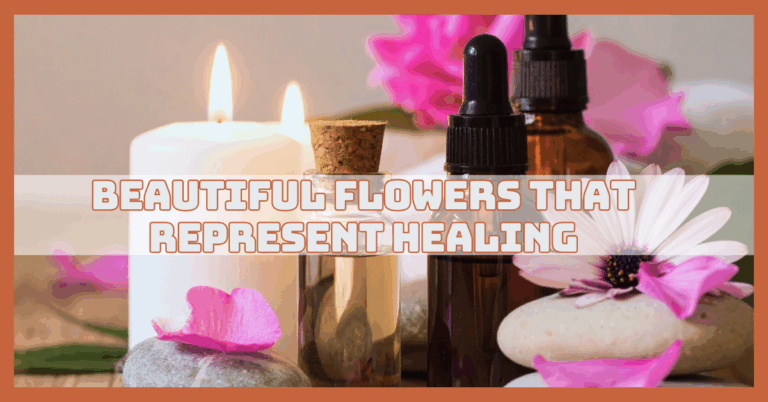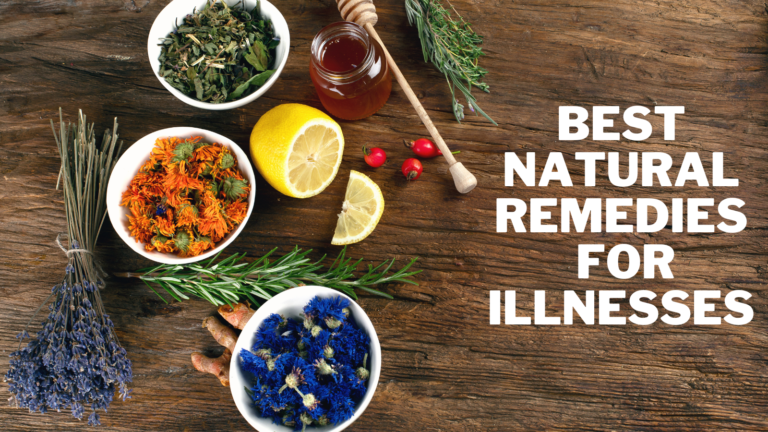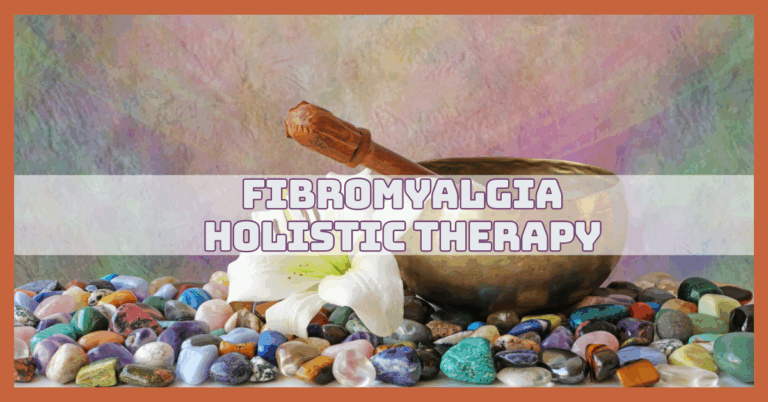Best Naturopathic Remedies For Allergies
Best Naturopathic Remedies For Allergies
Millions of individuals experience allergies yearly, which can be uncomfortable and interfere with daily life.
The symptoms of allergies are frequently treated with conventional medical procedures like antihistamines and nasal sprays.
However, more and more people are using naturopathic treatments as a substitute for or in addition to conventional treatments to treat their allergic reactions.
Naturopathy, a holistic approach to healthcare, aims to promote the body's inherent healing capacity and treat the underlying causes of many illnesses, including allergies.
Without mainly depending on prescription drugs, naturopathic treatments for allergies work to strengthen the immune system, lower inflammation, and promote general wellness.
This article will review some of the top naturopathic allergy treatments that are becoming increasingly well-liked among those looking for all-natural cures.
While some people may find relief from these treatments, it's important to remember that before beginning any new treatment plan, you should always speak with a trained naturopathic doctor or healthcare provider.
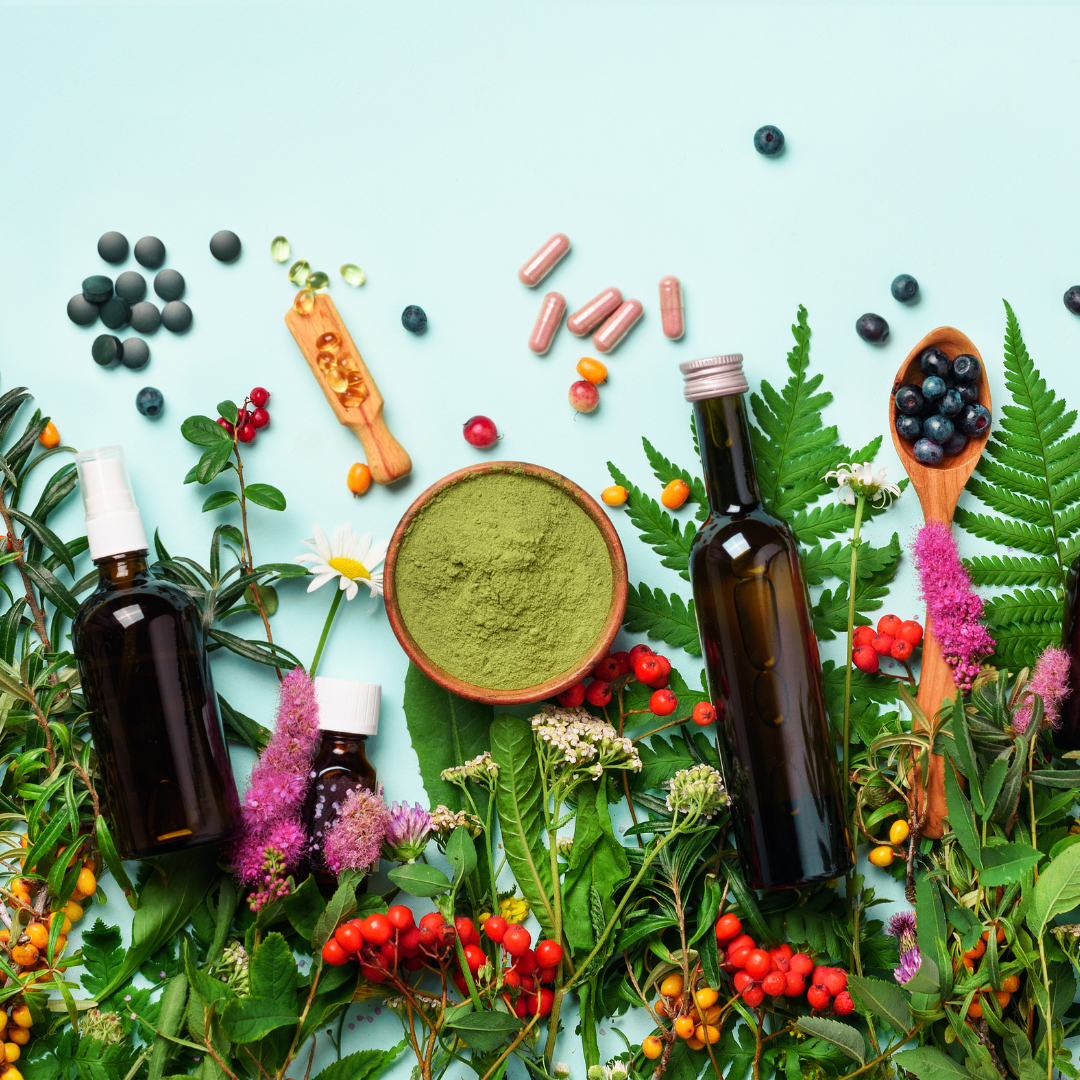
What Are Naturopathic Remedies?
Naturopathic medicine uses natural remedies to support the body's healing ability. Herbs, massage, acupuncture, exercise, and nutritional advice are just a few techniques it incorporates.
Although naturopathy was introduced to the United States from Germany in the 1800s, some of its practices date back hundreds of years.
Today, it incorporates certain modern scientific principles with conventional medical methods. A unique branch of medicine called naturopathic medicine integrates the rigours of contemporary science with the knowledge of nature.
Naturopathic doctors (NDs) are trained as primary care physicians who diagnose, treat, and manage patients with both acute and chronic diseases while addressing illness and dysfunction at the levels of the body, mind, and spirit.
The naturopathic profession grew quickly and reached its current level of maturity due to a resurgence in naturopathic healing in the 1970s.
The numerous all-natural treatments and cause-based strategies at the heart of naturopathic medicine continue to be in high demand from the general public.
Increased insurance coverage and legal recognition have made naturopathic doctors more accessible.
The industry is well-positioned to expand and offer widespread access to natural medicines supported by research.
Naturopathic medicine aims to treat the full person, which includes the mind, body, and spirit. It also tries to treat the underlying causes of a disease, not merely its symptoms.
A naturopathic doctor can examine you for up to two hours. They will discuss your health history, stress level, and lifestyle behaviours and might request lab tests.
After that, they usually talk about your health plan. Your doctor may provide nutrition, exercise, or stress management advice because naturopathic medicine strongly emphasizes education and prevention.
In addition to naturopathic therapies, natural medicine refers to complementary medicine, such as acupuncture, homeopathy, and herbal remedies.
Practitioners could also apply touches, such as pressure and massage, to restore the body's balance.
The Six Principles of Naturopathic Medicine unite all naturopaths. The Principles are the cornerstone of naturopathic medical training and patient care; they are not only an oath.
The foundation of ND practice is firmly rooted in the belief that it is essential to treat the individual, to encourage and support the body's innate ability to heal, to identify the root cause and address it as naturally and gently as possible, to educate patients on how to create wellness, and to prevent illness whenever possible.
The Therapeutic Order expands on the Six Principles to further direct the practical application of naturopathic medicine.
NDs can access therapies, from minor surgery to supplements, pharmaceuticals, and lifestyle counselling. The Therapeutic order encourages choosing the safest solution. The secret is safe.

Best Naturopathic Remedies For Allergies
Regarding naturopathic remedies for allergies, several approaches have shown promise in managing symptoms and supporting overall well-being.
It's important to note that individual responses may vary. Before starting any new treatment regimen, it is advisable to consult a qualified naturopathic doctor or healthcare professional.
Here are some of the best naturopathic remedies for allergies:
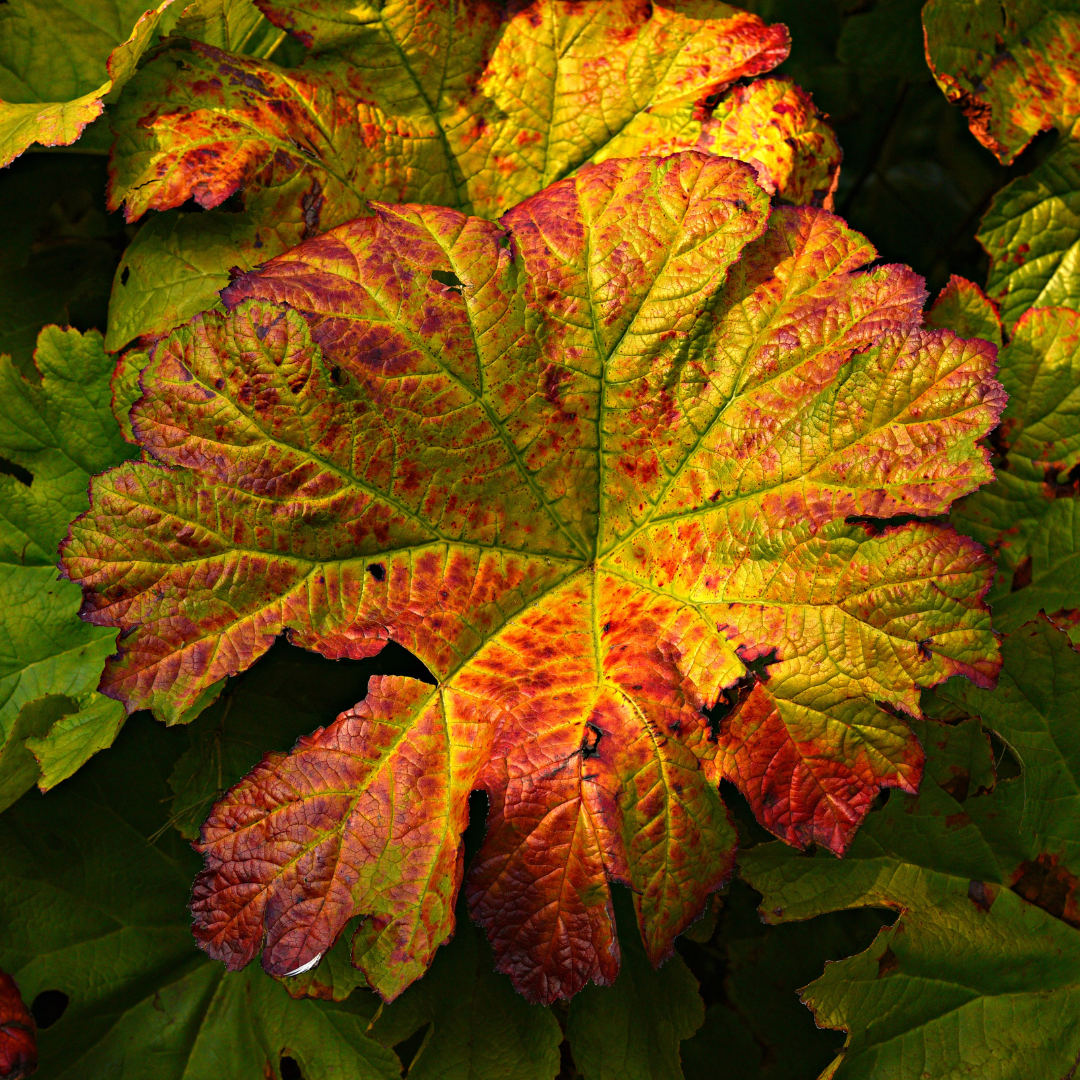
1. Butterbur (Petasites hybridus)
Butterbur is a perennial herb from Europe, North America, and parts of Asia. It was employed for many years in conventional medicine to treat various conditions, including allergies.
Butterbur includes petasins, active substances with anti-inflammatory and antispasmodic properties.
Butterbur was investigated for its potential to ease allergic rhinitis symptoms. Inflammation of the nasal passages, sneezing, congestion, and itching are symptoms of allergic rhinitis, also known as hay fever. An allergic reaction to pollen, dust mites, or pet dander brings these symptoms.
Butterbur was linked to research that suggests it may lessen allergic rhinitis symptoms. It is thought that butterbur's anti-inflammatory qualities prevent the synthesis of inflammatory compounds like leukotrienes, which are crucial to the allergic response. By lowering inflammation, butterbur may ease nasal congestion, sneezing, and itching.
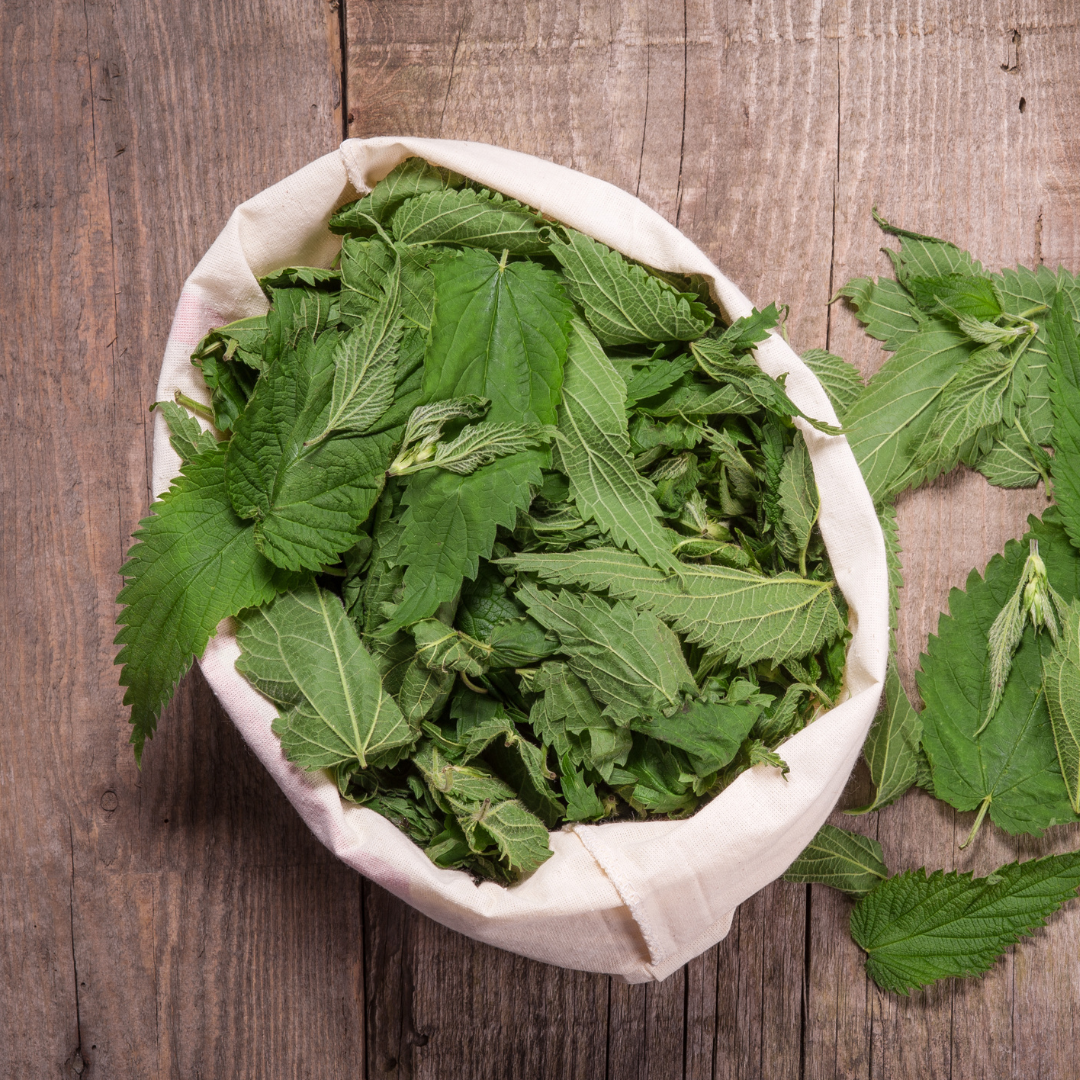
2. Stinging Nettle (Urtica dioica)
Urtica dioica, a perennial plant, is a common sight in many parts of the world. Stinging nettle has been utilized in traditional medicine for ages due to its potential health benefits despite its reputation for causing skin irritation upon contact.
Since it is thought to have natural antihistamine characteristics, it might aid in lessening allergic symptoms.
Sneezing, itching, and inflammation are some of the symptoms of allergies, which are brought on by the immune system overreacting to generally harmless elements like pollen, dust, or specific foods. Antihistamines function by inhibiting histamine's actions and easing allergy symptoms.
Numerous bioactive substances, such as histamine receptors and organic antihistamines like quercetin and kaempferol, are present in stinging nettles.
These medicines may alleviate allergy symptoms by suppressing the release of histamine and other inflammatory chemicals. The benefits of stinging nettle for allergies, especially allergic rhinitis, were studied in depth.
According to randomized controlled research, stinging nettle extract, as opposed to a placebo, dramatically reduced allergic rhinitis symptoms such as sneezing, itching, and nasal congestion.
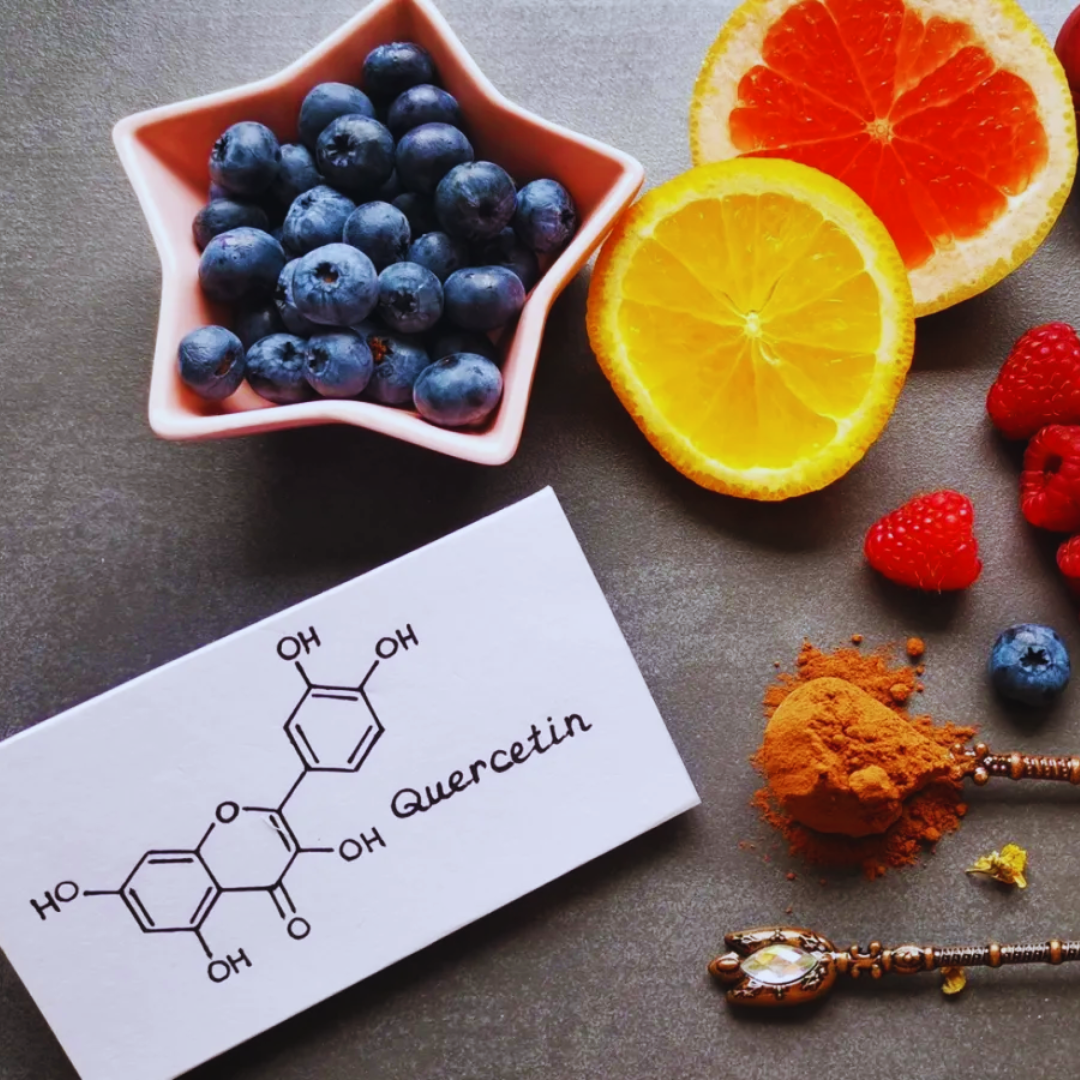
3. Quercetin
Several fruits, vegetables, and herbs contain quercetin, a flavonoid, a type of plant pigment. It was researched for its possible advantages in lowering allergy reactions and is known for having antioxidant and anti-inflammatory qualities.
By stabilizing mast cells, quercetin may reduce allergies through several different mechanisms. Immune cells, known as mast cells, are crucial to the allergic reaction.
Mast cells release histamine and other inflammatory compounds in response to allergens, causing allergy symptoms. Quercetin inhibits histamine release from mast cells, lessening the allergic reaction.
It can reduce symptoms, including sneezing, itching, and inflammation, by stabilizing mast cells and preventing excessive histamine release.
In addition to its impact on mast cells, quercetin has anti-inflammatory and antioxidant characteristics. It lowers oxidative stress in the body and aids in neutralizing damaging free radicals.
The antioxidant properties of quercetin may help reduce symptoms because oxidative stress can aggravate allergic reactions and cause inflammation.
Several studies have found that quercetin may be helpful for allergies. One found that quercetin intake may lessen the symptoms of allergic rhinitis, such as nasal congestion, itching, and sneezing.
The evidence is inconclusive, and more studies are required to completely comprehend the effectiveness and recommended dosage of quercetin for allergies.
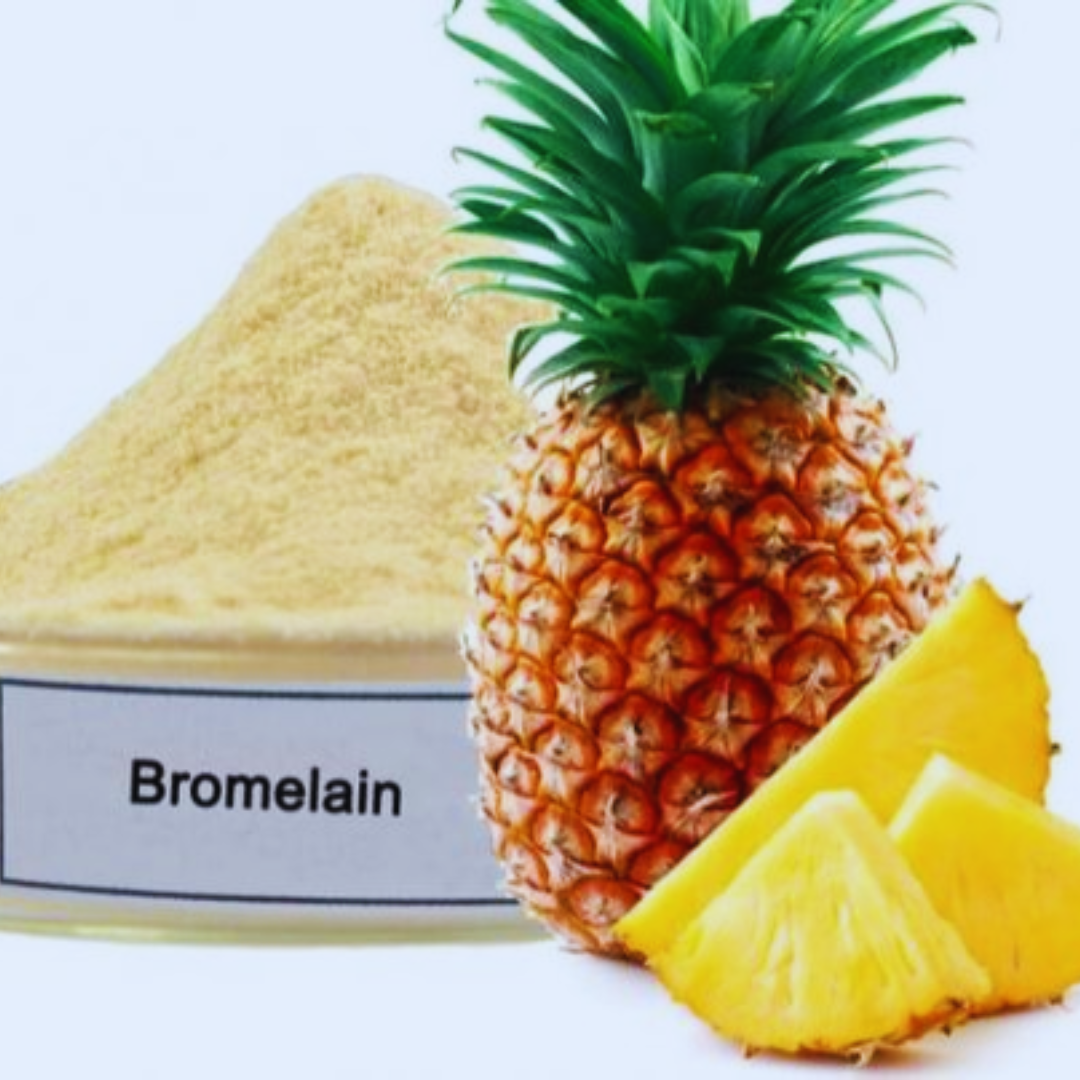
4. Bromelain
The pineapple plant (Ananas comosus) yields the enzyme bromelain. Although it has anti-inflammatory effects that may help treat allergies, especially nasal congestion, it is renowned for its digestive advantages.
Nasal congestion is a typical sign of allergic rhinitis, characterized by nasal channel inflammation brought on by an allergic reaction.
Bromelain's anti-inflammatory properties are thought to help lower nasal congestion and swelling.
Bromelain is a nutritional supplement offered in pill or capsule form. The product's manufacturer or a medical expert must adhere to the dosage recommendations.
Different dosages may be advised depending on the supplement's amount of bromelain.
Bromelain has the potential to thin the blood, so those who are using blood thinners or who have bleeding disorders should use caution and speak with a doctor before taking it as a supplement.

5. Probiotics
Probiotics are live microorganisms that can positively affect one's health when taken in sufficient quantities.
They are frequently found in some meals or can be purchased as nutritional supplements, and they are often referred to as “good bacteria.”
The maintenance of overall health, including immune function, depends heavily on the gut microbiome, which refers to the billions of microorganisms in our digestive system. Various medical disorders, including allergies, were linked to imbalances in the gut flora.
Research is being done to determine the precise processes through which probiotics affect allergies.
Probiotics are thought to control immunological responses, strengthen the intestinal barrier, and lower inflammation, all of which may help to lessen an allergic reaction.
Research is being done to determine the precise processes through which probiotics affect allergies.
Probiotics are thought to control immunological responses, strengthen the intestinal barrier, and lower inflammation, all of which may help to lessen an allergic reaction.

7. Nasal Irrigation
Nasal irrigation, often called nasal rinsing or nasal lavage, involves cleaning the nasal passages with a saline solution to eliminate mucus, allergies, and other irritants. You can do it with a neti pot, bulb syringe, nasal irrigation bottle, or similar tool.
Nasal irrigation aids in clearing out allergens that may have accumulated in the nasal passages, such as pollen, dust, pet dander, and pollution. The exposure and associated allergic reactions can be decreased by flushing them out.
Nasal congestion is a frequent allergy symptom caused by swollen and inflamed nasal passages.
Nasal irrigation uses a saline solution to moisturize the passages and reduce inflammation, relieving congestion and making breathing easier.
When making the saline solution, it's crucial to utilize sterile or distilled water to reduce the chance of contamination. Before using, tap water should be heated, let cool, and then filtered appropriately.
Nasal irrigation may only be ideal for some, although it can help with allergies. Before using nasal irrigation, patients with a deviated septum, recurrent nosebleeds, or other nasal disorders should speak with a healthcare provider.
Appropriate technique and hygiene are also essential to reduce the risk of infection and other consequences.

8. Acupuncture
Sneezing, itching, nasal congestion, and runny nose are just a few of the typical allergy symptoms that acupuncture has shown to help.
Additionally, Acupuncture might help reduce allergy symptoms, such as nasal pressure, weariness, and headache. The immune system overreacts to innocuous chemicals during allergic reactions.
Acupuncture is thought to assist in immune system regulation and reduce allergy symptoms through immune response modulation and inflammation reduction.
Depending on each person's unique symptoms, constitution, and general health, acupuncture treatments are tailored to meet their needs.
A trained acupuncturist will evaluate your illness and design a personalized treatment plan that may include focusing on acupoints associated with allergies and correcting any underlying bodily imbalances.
To promote health and well-being, acupuncture adopts a comprehensive approach that considers physical symptoms as well as emotional and mental components.
Stress, worry, and emotional imbalances can all impact allergies. Along with creating overall balance and a higher quality of life, acupuncture also tries to treat these factors.

9. Vitamin C
Powerful vitamin C has the potential to help with allergies. It acts as a natural antihistamine by inhibiting the production of histamine, a chemical implicated in allergic reactions, which relieves symptoms including sneezing, itching, and nasal congestion.
Furthermore, its anti-inflammatory and anti-oxidative stress-reducing qualities help reduce allergy-related oxidative stress and inflammation.
You can improve your intake of this vitamin by eating more foods high in vitamin C, like citrus fruits, strawberries, and bell peppers.
Consider taking vitamin C pills to ensure you get a proper daily amount. Speaking with a healthcare practitioner is crucial to determine the suitable supplemental type and dosage for your unique needs.
Although vitamin C can be relieving, it shouldn't be taken in place of prescribed allergy drugs or other therapies.
Rather, it should be a complementary strategy to improve general well-being and symptom management.

10. Essential Oils
Essential oils' potential therapeutic benefits, such as their capacity to reduce allergy symptoms, have contributed to their growing popularity.
Since they may have anti-inflammatory and antihistamine properties, some essential oils, including peppermint, eucalyptus, lavender, and tea tree oil, are frequently utilized in medical settings.
Menthol, a component of peppermint oil, can relieve breathing difficulties and clear nasal congestion.
Due to its anti-inflammatory qualities, Eucalyptus oil may help lessen allergic-related respiratory inflammation.
When experiencing an allergic reaction, lavender oil's relaxing and soothing qualities might help reduce stress and encourage relaxation.
Due to its antibacterial qualities, tea tree oil may be useful in reducing allergic skin irritations.
It's important to take caution and adhere to the correct recommendations while using essential oils for allergies.
Due to their high concentration, essential oils may occasionally induce skin rashes or allergic responses when applied directly.
Diluting essential oils with carrier oil, such as coconut or jojoba, is crucial before topically using them.
A basic rule of thumb is to cut essential oils by 2%, which entails adding around 12 drops per ounce (30 ml) of carrier oil.
In addition to topical usage, essential oils can be used aromatically by inhaling steam or using diffusers.
Aromatic components in essential oils can be inhaled to reduce nasal congestion and support respiratory comfort during allergic reactions.
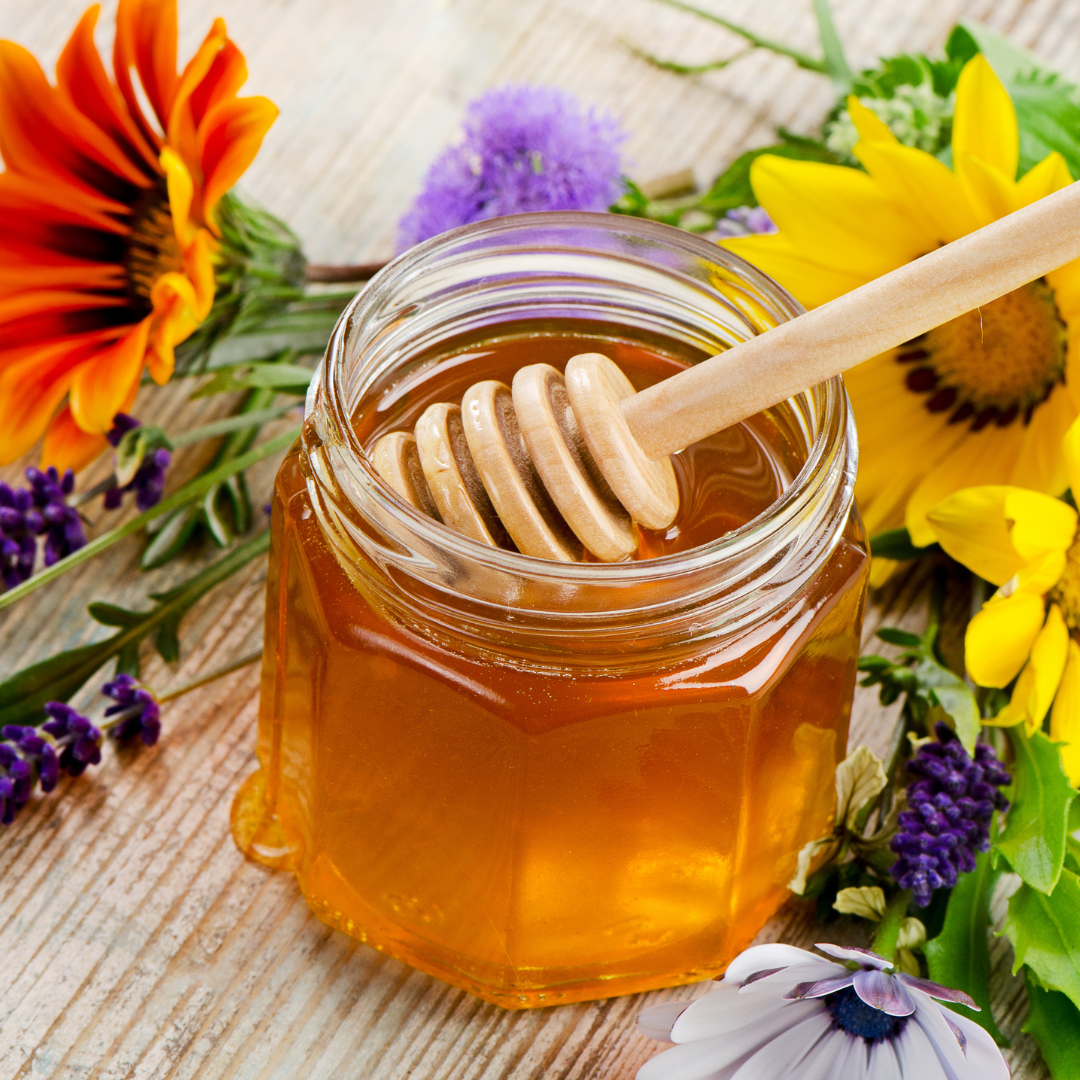
11. Local Honey
Allergies, especially seasonal allergies brought on by pollen, have been linked to possible natural treatments such as local honey.
Local honey is based on the immunotherapy principle, in which gradual exposure to allergens helps desensitize the immune system.
Bees harvest nectar from nearby flowers and plants, particularly those that produce pollen, and use it to make local honey. Consuming modest amounts of regional honey exposes the body to traces of regional pollen.
Due to repeated exposure, the body may gradually become tolerant to the same allergens, which may lessen the intensity of allergic reactions.
Regularly using local honey may cause a minor immunological reaction since it includes tiny amounts of pollen.
This repeated exposure may modify the immune system's response to pollen. It may also lessen the amount of histamine produced—the chemical that causes allergy symptoms—and assist in decreasing the severity of the symptoms. The anti-inflammatory qualities of honey are generally known.
There isn't much data linking local honey to allergies, but honey's anti-inflammatory properties could help lessen allergic reactions and inflammation brought on by allergies.
For mild to severe allergy symptoms, local love is more likely to be helpful. It could not be effective when dealing with severe or asthma-related allergies, which demand more intricate immune reactions.
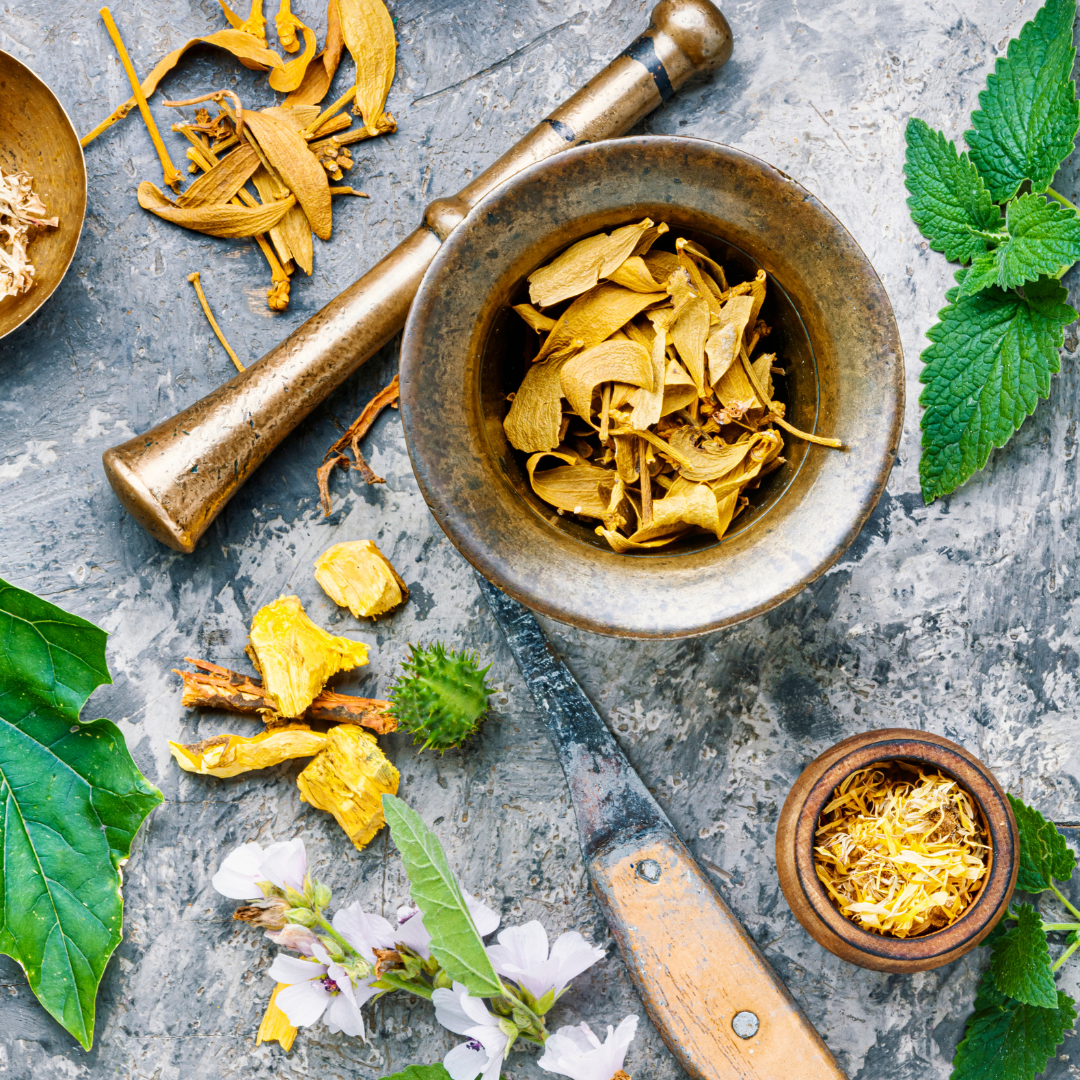
Conclusion
In conclusion, naturopathic treatments provide various viable solutions for treating allergies.
Natural therapies can support traditional medical procedures and complement them in managing allergies, which is important but not the only factor.
Remember that naturopathic therapies should not be used in place of prescribed allergy drugs or other treatments suggested by healthcare specialists.
Instead, they can be used as an additional strategy to help with symptom relief, improve general well-being, and lessen reliance on traditional pharmaceuticals.
Ultimately, the most effective way to manage allergies is a customized and integrative strategy incorporating traditional medical care, naturopathic treatments, and lifestyle changes.
By collaborating closely with healthcare specialists and using a comprehensive approach, people can discover efficient methods to control their allergies and enhance their quality of life.
I trust you enjoyed this article on the Best Naturopathic Remedies For Allergies. Please stay tuned for more blog posts soon. Take care!
JeannetteZ
>>>Please click here to read my all-inclusive article about A Comprehensive Guide To Healing Naturally<<<
>>>Are you interested in Natural Healing through Herbs? Please click here for my #1 Recommendation<<<
Your Opinion Is Important To Me
Do you have thoughts, ideas, or questions? I would love to hear from you. Please leave your questions, experiences, and remarks about the Best Naturopathic Remedies For Allergies article in the comments below. You can also email me at Jeannette@Close-To-Nature.org.
Disclosure
This post may contain affiliate links. As an Amazon Associate and other affiliate programs, I earn from qualifying purchases at no extra cost to you. Please read my full affiliate disclosure.
You might also enjoy these blog posts:
Best Ayurvedic Herbs For Digestion
Best Traditional Chinese Medicine For Natural Healing
Best Natural Therapies For Physical Well-Being
Best Steps To Grow Turnips In Containers
Healthiest Root Vegetables For Gardening

